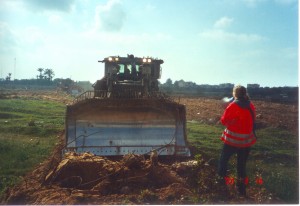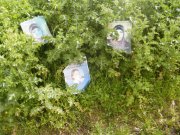Tag: Rachel Corrie
-
Gaza activists: #RememberRachel and support #BDS
Palestinians in Gaza support the Corrie family on the eve of the verdict in their lawsuit against Israel over its 2003 killing of their daughter Rachel, as well as divestment from Caterpillar and the global Boycott, Divestment, and Sanctions (BDS) movement.
-
Verdict in Rachel Corrie lawsuit to be announced August 28
22 August 2012 | the Rachel Corrie Foundation, Occupied Palestine The verdict in the civil lawsuit against the State of Israel for the killing of peace activist Rachel Corrie over nine years ago will be announced August 28, 2012, at 9:00 a.m. at the Haifa District Court. Rachel Corrie, a 23-year-old American from Olympia, Washington, was…
-
Rachel Corrie & Hana Shalabi: Flowers among thistles of Israeli occupation
by Nathan Stuckey 21 March 2012 | International Solidarity Movement, Gaza Rachel Corrie was murdered nine years ago by an Israeli bulldozer. Hana Shalabi has spent the last 34 days on hunger strike an Israeli prison, yet she is accused of no crime. This was not the first time Hana has been held in Israeli…


